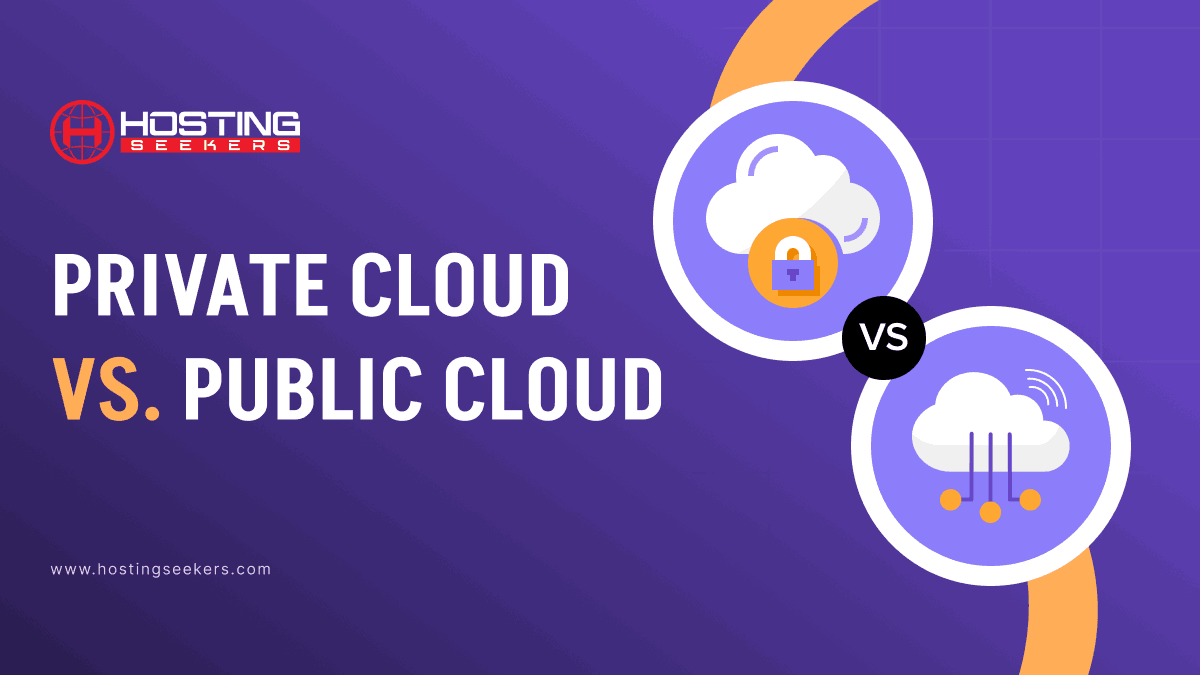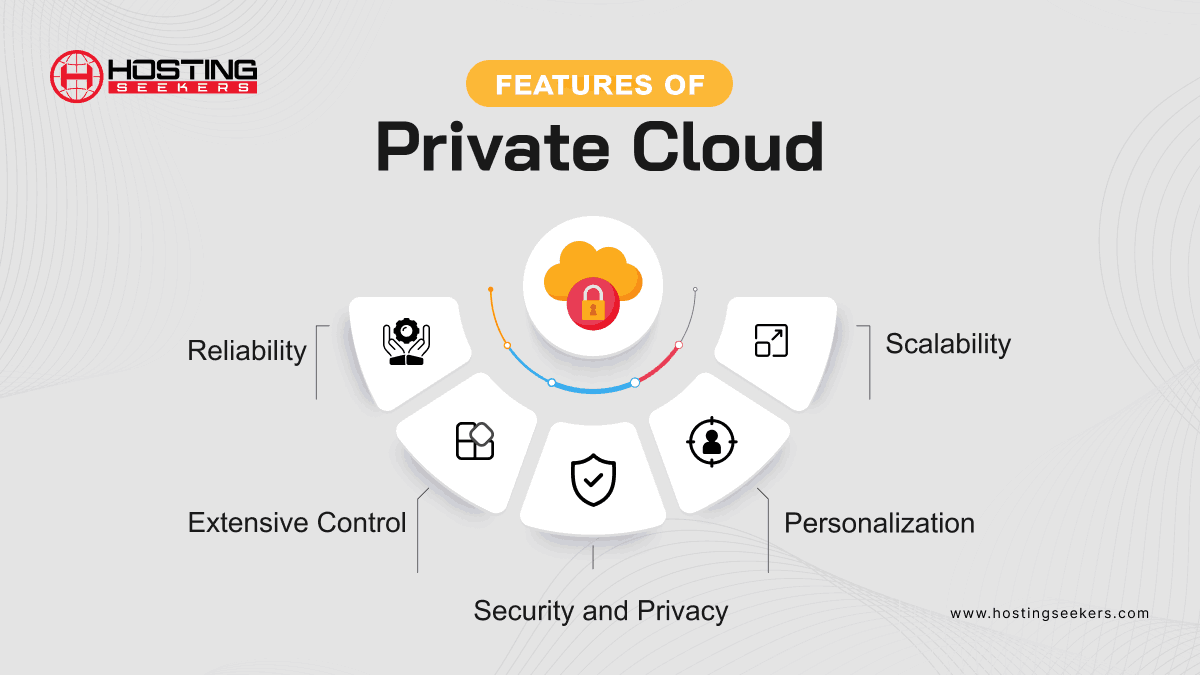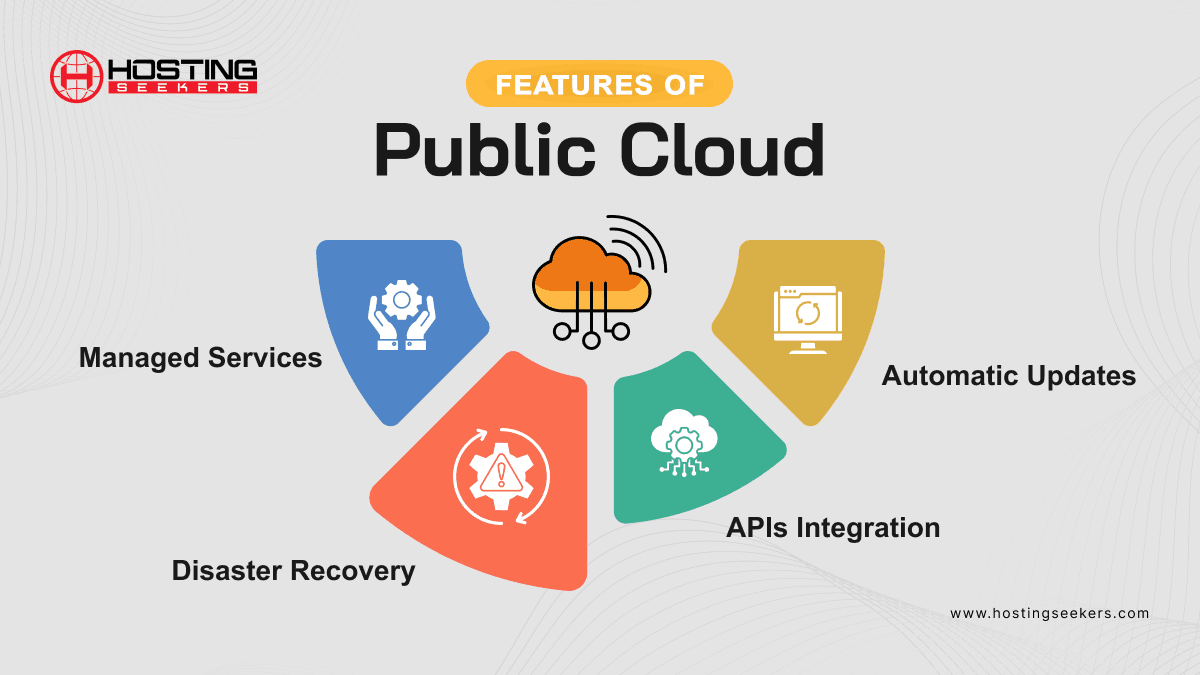

Cloud Industry Comparison
July 5th 2024
Does choosing between cloud computing solutions make you more confused? Well, there are mainly two options: private and public cloud. Therefore, selecting between Private and Public clouds can be challenging, or you might be confused about choosing the right one. This blog will help you explore the difference between public and private cloud and select the appropriate one which is the right fit for you.
What is a private Cloud?
A private cloud is also a cloud computing model called an on-premises data center. A single business has intensive access to resources, cloud services, and infrastructure in a private cloud.
A cloud service may also provide private cloud technology, like a public cloud. The main difference between the private and public clouds is that the private cloud is dedicated to a Wholly single business, while multiple companies can share resources in the public cloud.
High-data businesses like educational institutes, government offices, hospitals, and more utilize private clouds. These organizations require secure and customizable IT environments to manage crucial data such as clients’ personal and medical records. The level of control and customization in private clouds empowers these organizations and ensures they are in control of their data and operations.
Features of Private Cloud


1. Security and Privacy
When comparing public and private cloud services, private cloud offers higher security than public cloud services. Due to restricted access, the private cloud provides security services.
2. Reliability
Private cloud provides virtually created operating environments, which state that the network is highly flexible and can be used for individual features.
3. Extensive Control
As in the Private cloud, the resources are restricted to one business. Management and configuration of the private cloud could be aligned as per their business requirements for obtaining a personalized network solution.
4. Personalization
The private cloud enables greater personalization of applications, infrastructure, and services to meet an organization’s business requirements.
5. Scalability
Easy scalability comes with Private Cloud. It offers scalability as organization’s business requirements without sharing resources with other users.
Benefits of Private Cloud
1. Good Cloud Disaster Recovery Option
The control and security of a private cloud make it a famous option for disaster recovery. Many businesses utilize this dedicated cloud environment for failover and replication. Therefore, private cloud architecture is more suitable for applications and workloads that need more availability with less downtime.
2. Cost-effectiveness
Private investment requires high infrastructure, which can be more cost-effective in the long run. This avoids the need for recurring payments.
3. Personalization
The private cloud lets businesses easily personalize their software and hardware. For example, your IT team can easily personalize particular data storage and backup requirements, boosting cost-effectiveness.
4. Compliance
Private Could be easily designed and developed to meet regulatory compliance needs, such as data privacy laws or industry-specific regulations.
Drawbacks of Private Cloud
1. Private Clouds are more expensive
On-site private clouds can cost you more than if you were to host your apps utilizing public cloud architecture. Therefore, you must invest in servers, network infrastructure, software licenses, and data centers. You can also go for managed cloud hosting solutions that can help you to scale your business.
2. Need Significant IT resources
When comparing private vs. public cloud, another drawback of private cloud is that handling and maintaining a private cloud can be heftier on your pockets than a public cloud environment. Manually, you may need IT professional to deploy, configure, and manage your cloud’s software and hardware.
3. Reliability Issues
Private cloud hosting lacks reliability. If mishaps happen, like a power outage or server failure, you may be responsible for fixing them. Therefore, you must invest more in additional delay measures to ensure your systems are reliable.
What is a Public Cloud?
A public cloud is a versatile option that enables organizations to store their data, applications, and other features in a virtual environment managed by a service provider. Also, this option allows teams to easily access many devices, browsers, and more while saving money and time and increasing flexibility and security.
Compared to traditional on-premises testing, a public cloud allows businesses to seamlessly access the latest software and hardware updates. It also helps to quickly deploy new apps with less effort and reduced cost.
Features of Public Cloud


1. Managed Services
The public cloud comes with various managed services, such as machine learning, IoT, analytics, and more, enabling clients to easily take advantage of advanced technologies without managing the infrastructure.
2. Disaster Recovery
Public cloud services also incorporate built-in disaster recovery solutions, enabling businesses to easily recover from data outages or losses.
3. APIs Integration
Public cloud platforms offer APIs and integration abilities, enabling them to connect with other services and automate workflows easily.
4. Automatic Updates
Also, Public and private cloud enables automatic updates, ensuring users can easily access the latest security and feature patches without manual disruption.
Benefits of Public Cloud
1. Cost-effective
Public cloud services neglect the requirement for organizations to invest in and maintain on-premises infrastructure. With pay-as-you-go pricing, businesses can easily control costs more effectively, allowing you to only pay for the resources they utilize.
2. Reach Globally
Public cloud providers efficiently operate and run data centers in multiple geographic regions, enabling businesses to deploy applications and services internationally. This reduces the delay time when end-users access data across different locations.
3. Agility and Innovation
Public cloud resources allow businesses to respond immediately to changing business needs. This agility boosts innovation by allowing businesses to experiment with new ideas.
4. Security and compliance
Renowned public cloud providers invest heavily in security compliance and measurement certifications; this helps organizations meet regulatory requirements and ensure their data is processed and stored in a secure environment.
5. Connectivity and Collaboration
Public cloud services facilitate easy and seamless collaboration among other teams, regardless of their physical location. The availability of advanced networking abilities allows effective connectivity and communication.
Drawbacks of Public Cloud
Security Risk
Storing sensitive data on a public cloud can result in security concerns. Data threats and breaches may occur, exposing confidential data, which may lead to huge data loss. Also, matching regulatory compliance needs can be challenging when data is stored in a public cloud, as it may occur in multiple jurisdictions with different laws.
Lack of Control
Public cloud services may lack control as compared to private clouds. Users may not be able to tailor the infrastructure to their particular requirements.
Performance Issues
Public cloud services may suffer from bandwidth and delay errors, especially when the data center is away from the users. This can impact the performance of services and applications.
Cost Management
Public cloud may come up with additional expenses. You can pay as you go models which may result in unexpectedly high prices, particularly in case you increase usage.
Private Cloud vs Public Cloud: Final Verdict
Choosing between Private cloud and public cloud depends on your business approach. You can consider various factors, such as technical capabilities, particular use cases, available infrastructure, and budget considerations.
Frequently Asked Questions
Q1: What is the difference between private and public clouds?
Ans: Many businesses share the public cloud, and a single organization owns the private cloud.
Q2: Is AWS a public or private cloud?
Ans: AWS also stated that Amazon web services is a public cloud.
Q3: What is the difference between SAC Public cloud and private cloud?
Ans: The public cloud provides convenience and scalability, while the private cloud offers more control over compliance, customization, and security.
Q4: Is Google Cloud private or Public?
Ans: Google Cloud is a public platform.
Q5: Is the private cloud more secure than the Public?
Ans: As private clouds are owned by a single organization, there is no data sharing, so they are considered more secure.
